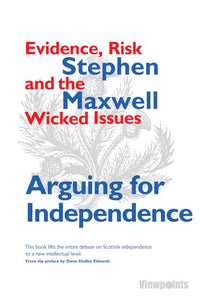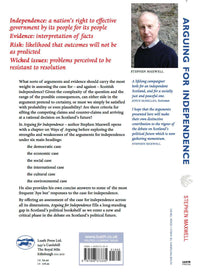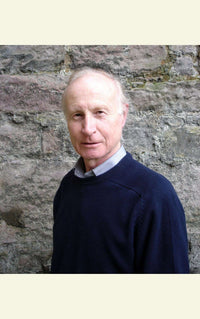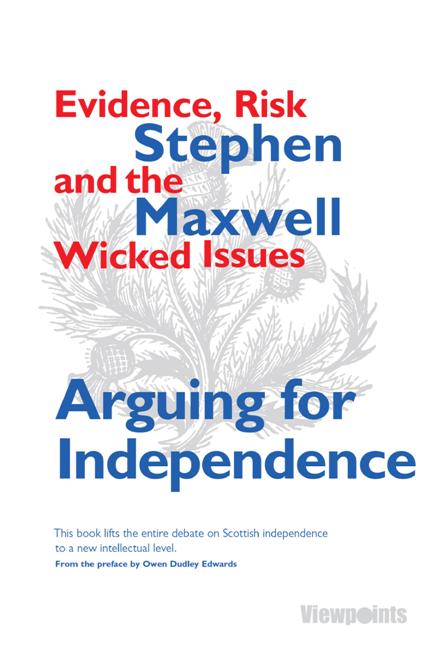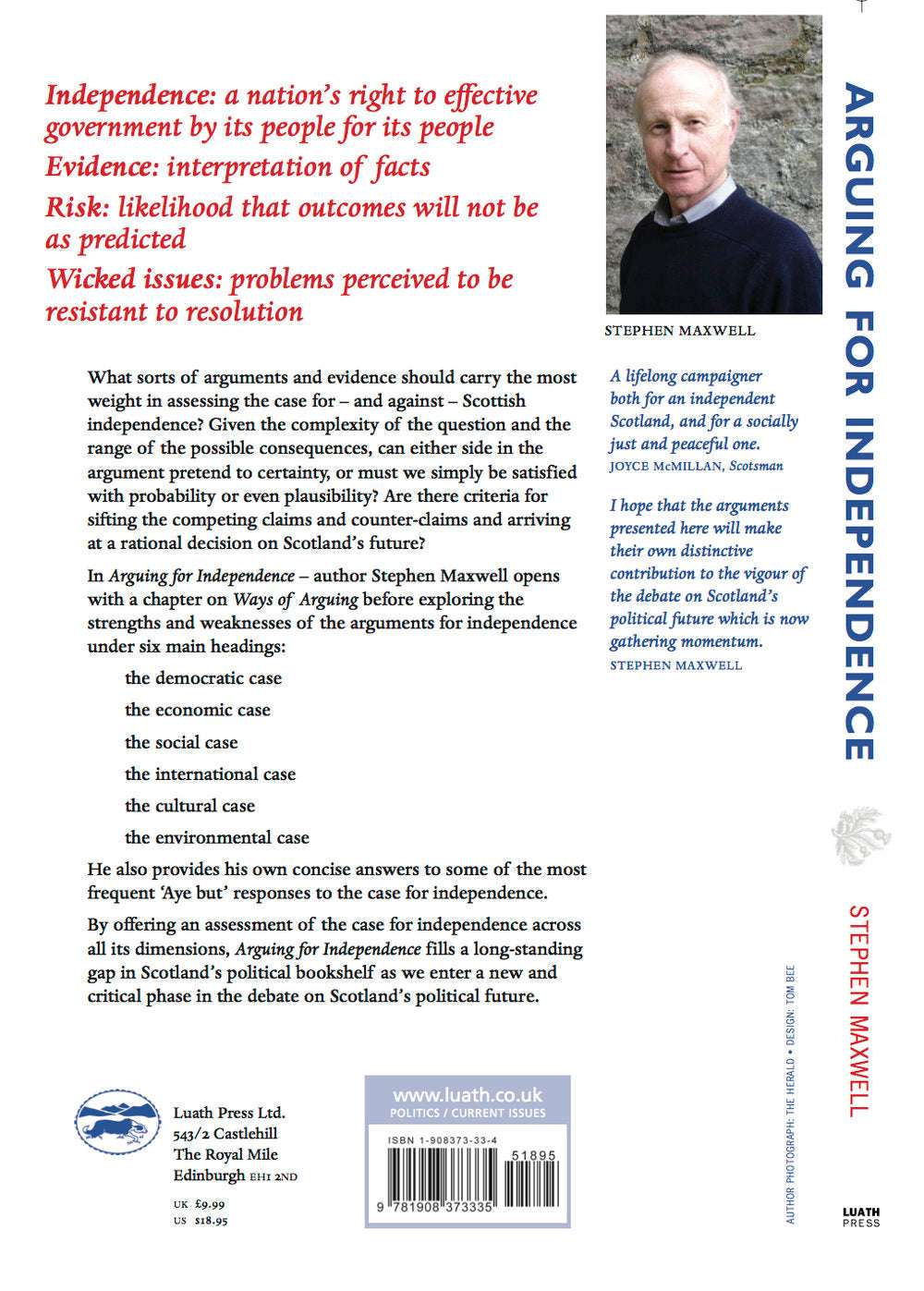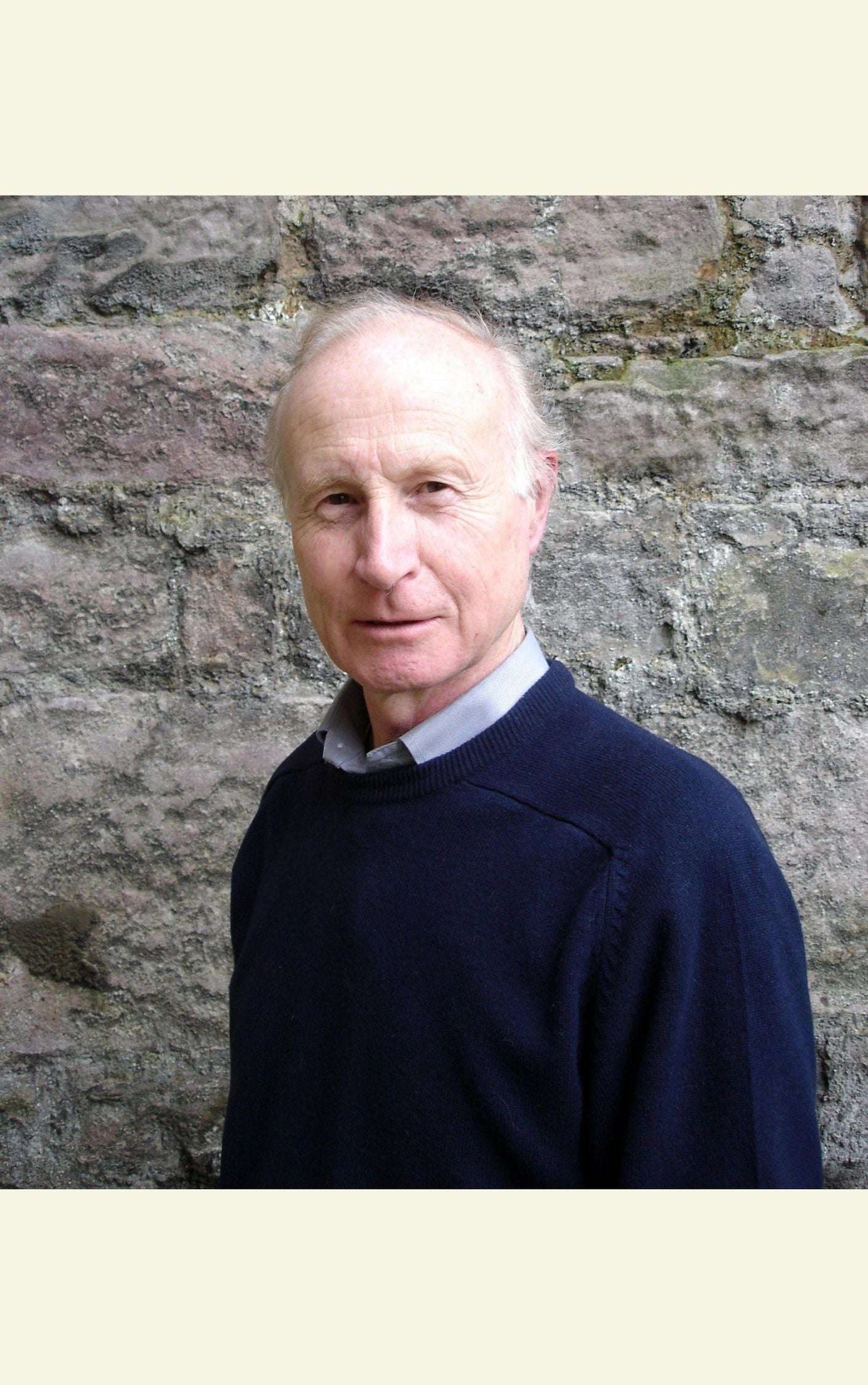Arguing for Independence
Evidence, Risk and the Wicked Issues
- Regular
- £9.99
- Sale
- £9.99
- Regular
- £9.99
- Unit Price
- per
Shortlisted for 'Polemic of the Year' at The Paddy Power and Total Politics Political Book Awards 2013
Our Ebooks are powered by Glassboxx
Click here to learn about our Ebooks.
About the Book:
Independence: a nation's right to effective government by its people or for its people
Evidence: interpretation of facts
Risk: likelihood that outcomes will not be as predicted
Wicked issues: problems perceived to be resistant to resolution
What sorts of arguments and evidence should carry the most wight in assessing the case for and against Scottish independence? Given the complexity of the question and the range of the possible consequences, can either side in the argument protend to certainty, or must we simply be satisfied with probability or even plausibility? Are there criteria for sifting the competing claims and counter-claims and arriving at a rational decision on Scotland's future?
In Arguing for Independence author Stephen Maxwell opens with a chapter on The Ways We Argue before exploring the strengths and weaknesses of the arguments for independence under six main headings:
the democratic case
the economic case
the social case
the international case
the cultural case
the environmental case
He also provides his own concise answers to some of the most frequent 'Aye but' responses to the case for independence.
By offering an assessment of the case for independence across all its dimensions, Arguing for Independence fills a longstanding gap in Scotland's political bookshelf as we enter a new and critical phase in the debate on Scotland's political future.
Reviews:
Stephen Maxwell has a positive, left-wing case for independence. Scottish Left Review
Maxwell was an intellectual, a thinker, a writer, a civic activist, and a dedicated servant of Scotland’s voluntary sector. Joyce McMillan, The Scotsman
Maxwell has done his homework assiduously. The key historical, social science and political sources on the subject have been marshalled with skill and to good effect...The author writes in coherent and lucid prose so even complex economic arguments can be reaily understood and absorbed. Sunday Herald
This is a book of profound thought, intelligence and wit. To my mind it is the best book on the need for Scottish Independence and it certainly should be read and cherished by all of us who hope to contribute to the campaign. Stephen stimulated many of us for years, but this is his final and most powerful work. As Owen Dudley Edwards says in his Preface: “This book lifts the entire debate on Scottish independence to a new intellectual level. Paul Henderson Scott
By offering an assessment for the case for independence across all of its dimensions, Arguing for Independence fills a long-standing gap in Scotland’s political bookshelf as we enter a new and critical phase in the debate on Scotland’s political future. Scottish Review of Books
Maxwell’s is a volume of great utility and importance. Scottish Review of Books
There are many intriguing insights in the book, and many presentations of material which has been gathered together for the first time in a comprehensive manner. Scottish Review of Books
Every young person in Scotland should read for themselves how Stephen defines and analyses the state we’re in (pun entirely intended) before intentions are firmed up towards the Independence Referendum. Margo MacDonald
It is a wonderful book… and it’s a great legacy for him to have left Scotland at this time. Elaine C. Smith
It stands as a fine contribution by a fine man. Alex Salmond, The Week
About the Author:

STEPHEN MAXWELL was born in Edinburgh in 1942 to a Scottish medical family. He grew up in Yorkshire and was educated there before winning a scholarship to St John’s College Cambridge, where he read Moral Sciences. This was followed by three years at the London School of Economics studying International Politics. Attracted by stirrings of Scottish Nationalism, he joined the London branch of the SNP in 1967. He worked as a research associate for the International Institute for Strategic Studies in London and a Lecturer in International Affairs at the University of Sussex. In 1970 he returned to Scotland as Chatham House Research Fellow at the University of Edinburgh. He was a frequent contributor to the cultural and political journals from Scottish International Review through Question to Radical Scotland, which fertilized the Scottish debate from the 1970s to the 1990s. From 1973 to 1978 he was the SNP’s National Press Officer and was director of the SNP’s 1979 campaign in the Scottish Assembly Referendum. He was a SNP councilor on Lothian Regional Council 1975-1978 before serving as SNP Vice Chair successively for Publicity, Policy and Local Government. From the mid 1980s he worked in the voluntary sector initially with Scottish Education and Action for Development (SEAD) and then for the Scottish Council for Voluntary organizations (SCVO). He retired in 2009. He was the founding chair of a Scottish charitable company which today provides support to enable six hundred vulnerable people to live in the community. He has contributed to numerous collections of essays on Scotland’s future, most recently The Modern SNP: from protest to power (ed Hassan, EUP 2009) and Nation in a State (ed Brown, Ten Book Press 2007). Stephen Maxwell died on 25th April 2012, aged 69.

